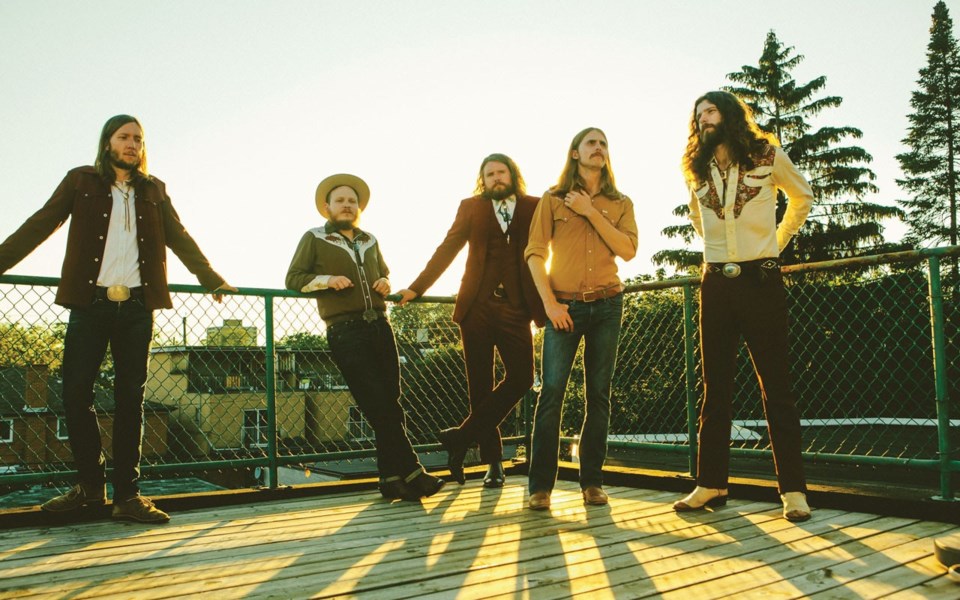Compared to the career trajectory of their rock n' roll compatriots, The Sheepdogs did everything backwards. Plucked from relative obscurity in 2011 to become the first unsigned band to grace the cover of Rolling Stone, the Saskatchewan rock purists were thrust into the spotlight after winning the magazine's "Choose Your Cover" contest.
Through no fault of their own, this career-defining moment remains, almost a decade later, how many casual fans remember The Sheepdogs. Never mind that they have since earned a handful of Juno nods, hit the road on several continent-spanning tours, and have fleshed out their classic rock-tinged sound with the addition of a handful of new members, including trombonist (and brother of lead singer/guitarist Ewan Currie) Shamus.
"Obviously it was a big shot in the arm out of nowhere," Currie says. "I think the inorganic nature of that competition might not have given somebody the best impression of us if they think we're just this novelty, contest-winning band. But at the same time, at a time when we were coming off of consecutive money-losing tours, trying to pay down our line of credit and put gas in the van, all of a sudden we were on the radio in Canada and people were checking out our music and coming to our shows. It gave us a shot in the arm. Looking back, I would do it all over again."
And yet, for all the attention the Rolling Stone cover still gets (including from this here reporter), Currie doesn't feel any outside pressure to live up to the massive levels of hype the opportunity sparked.
"To be honest, I don't really think about it," he says. "I'm just trying to do rock n' roll and make sure that if people buy a ticket to come see us, they get an entertaining show. That's more the pressure, the pressure we put on ourselves."
In an era when the music-consuming public seems to be moving increasingly away from rock—2017 marked the first year hip hop/R&B overtook rock on the U.S. charts—bands like The Sheepdogs are preserving and adding their take to a decidedly retro, guitar-driven brand of Southern rock.
"We're kind of like artisan, small-batch craftsmen. You see it with food and beer. You're seeing people take stuff back to the old way of doing things: they're doing things in small batches with more love and a more hands-on approach," Currie says, "I think music, especially rock music, became pretty corporate towards the end of the '70s, and we're interested in bringing it back to songwriting and musicality, like our heroes did: Crosby, Stills and Nash and The Beatles, where they were writing about their lives and trying to do interesting things and have fun playing music."
That's not to say The Sheepdogs have remained stagnant. What started as a power trio with just Currie on vocals has grown into a five-piece deeply interested in harmonies, with each member taking on singing duties at various times.
"There are multiple soloists and we just kind of branched out from there, became better players and added more elements to it, more harmony and more interesting dynamics," Currie says, adding that, as a songwriter, he has strived to work more with melody and ditch more simplistic guitar riffs.
"I listen to a lot of different kinds of music so it's fun to make music that has a lot of different styles and vibes," he says. "I don't think of it so explicitly as, 'We need to evolve and do something different.' I think it just sort of naturally happens that way, because I'm not really interested in doing the same old thing."
The Sheepdogs hit the Olympic Plaza stage on July 20 at 7:30 p.m., part of the free Whistler Presents Outdoor Summer Concert Series.




